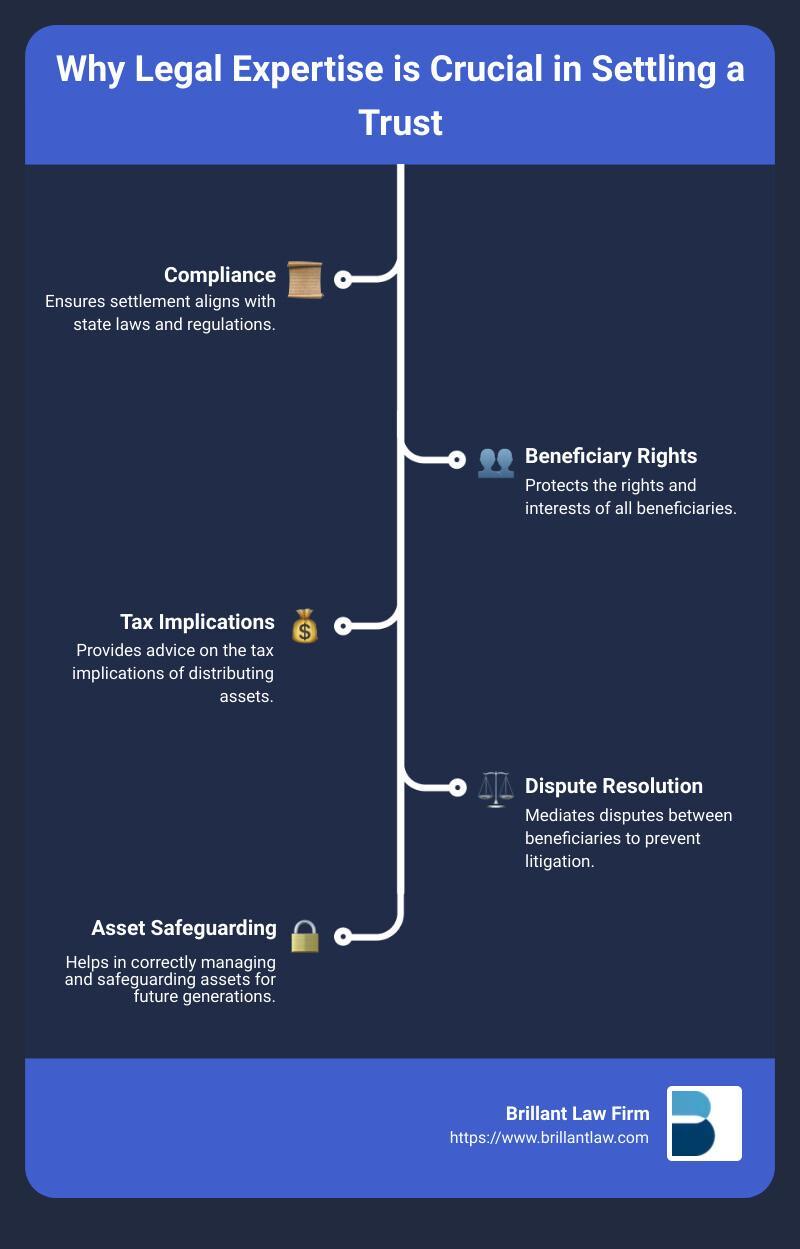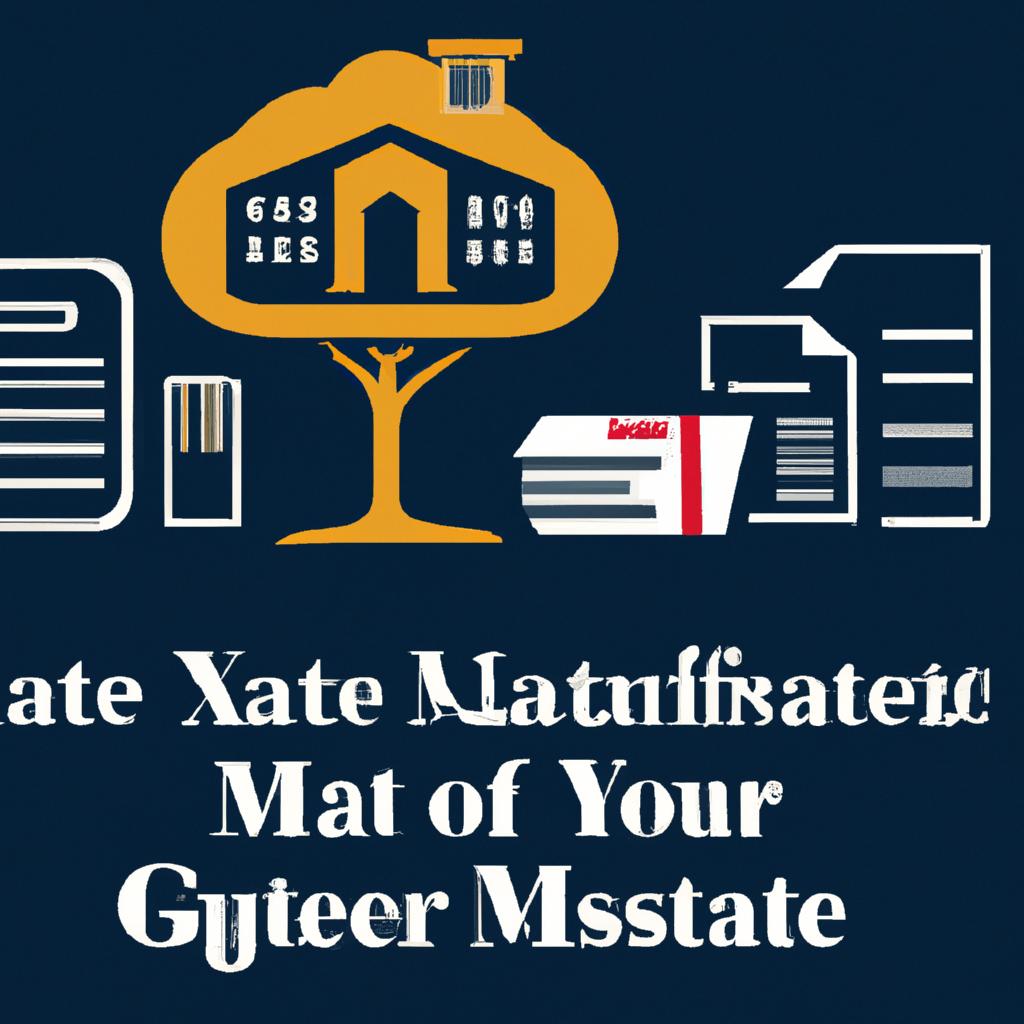Welcome to the complex landscape of estate settlement, where the intricacies of organizing assets and fulfilling final wishes present a formidable challenge. In this comprehensive guide, we will walk you through the intricate process of estate settlement, equipping you with the necessary tools and knowledge to navigate this demanding journey seamlessly. From grasping the concept of probate to distributing assets, this article will act as your guiding light in the realm of estate settlement. So, get comfortable, grab a cup of tea, and allow us to lead you through the complex legalities and emotions that accompany the final chapter of a loved one’s life.
Understanding the Fundamentals of Estate Settlement
To effectively navigate the process of estate settlement, it is essential to gain a thorough understanding of several key concepts. Identifying all the assets and debts of the deceased individual is one of the critical initial steps. This encompasses everything from bank accounts and investments to personal belongings and real estate property. A clear understanding of the estate’s assets and liabilities is crucial for a successful settlement.
Furthermore, it is important to ascertain whether there is a valid will in place. A will serves as a legal document outlining how the deceased individual’s assets should be distributed after their passing. If a will exists, the named executor is tasked with carrying out the wishes of the deceased. On the other hand, in the absence of a will, the estate will be distributed according to state laws. Effectively communicating with all parties involved, including beneficiaries, creditors, and legal advisors, is crucial during the estate settlement process. Keeping everyone informed and updated on the progress can prevent misunderstandings and disputes down the line, leading to a smoother process for all parties involved.
Key Actions to Take During the Estate Settlement Process
During the estate settlement process, it is vital to follow key steps to ensure a smooth and successful transition of assets. One crucial step is the gathering of all necessary documents related to the deceased individual’s estate, including wills, trusts, insurance policies, and financial statements. Additionally, it is essential to notify relevant parties of the individual’s passing, which may include financial institutions, government agencies, and beneficiaries.
Engaging with professionals such as estate attorneys and financial advisors to navigate the complexities of the estate settlement process is also crucial. These experts can provide valuable guidance and support to ensure that all legal requirements are met, and assets are distributed according to the individual’s wishes.
Dealing With Common Challenges in Estate Settlement
Managing the conflicting interests and emotions of multiple beneficiaries is a common challenge in estate settlement that can lead to disagreements or disputes, ultimately causing delays in the process. Open communication and compromise are key in overcoming this challenge and preventing conflicts from escalating.
Another significant challenge is navigating complex legal and financial issues, such as taxes, debts, and asset distribution. Seeking professional help from estate planning attorneys, financial advisors, or accountants is crucial in overcoming this challenge and avoiding costly mistakes.
Expert Recommendations for a Smooth Estate Settlement Experience
To ensure a smoother and less stressful estate settlement experience, several expert tips can be followed. Open and clear communication with all parties involved, staying organized, and seeking professional guidance are all crucial for an efficient and effective estate settlement journey.
In Conclusion
As you embark on the journey of estate settlement, equip yourself with knowledge and patience, as this guide is just the first step in settling your loved one’s affairs. With careful planning and attention to detail, you can honor their legacy and ensure a smooth transition for all involved. Remember that you are not alone in this journey, and together, we can navigate this challenging time and emerge stronger on the other side. Wishing you good luck, and may the road ahead be paved with peace and understanding.

Mastering the Estate Settlement Process: Your Complete Guide
When a loved one passes away, navigating the estate settlement process can be a daunting task. From understanding legal requirements to managing emotional complexities, there are many challenges to overcome. This comprehensive guide will walk you through the steps involved in settling an estate, as well as provide practical tips for success.
Understanding the Estate Settlement Process
Settling an estate involves several key steps, each of which must be completed in order to distribute the deceased’s assets and property according to their wishes. Here is an overview of the main stages of the estate settlement process:
Inventorying Assets
One of the first steps in settling an estate is to inventory the deceased’s assets. This includes any real estate, bank accounts, investments, personal belongings, and other valuable items. Creating a detailed list of assets will help ensure that nothing is overlooked during the settlement process.
Valuing Assets
Once the assets have been inventoried, the next step is to determine their value. This may involve hiring appraisers or other professionals to assess the worth of items such as jewelry, antiques, and artwork. Having accurate valuations of assets is crucial for distributing them fairly among beneficiaries.
Paying Debts and Taxes
Before any assets can be distributed to heirs, outstanding debts and taxes must be paid. This may include credit card bills, mortgage payments, and estate taxes. Working with a qualified accountant or financial advisor can help ensure that all debts and taxes are settled correctly.
Distributing Assets
Once all debts and taxes have been paid, the remaining assets can be distributed to beneficiaries according to the deceased’s will or state laws. This may involve transferring ownership of property, distributing cash assets, and dividing personal belongings among heirs.
Practical Tips for Success
Settling an estate can be a complex and time-consuming process, but there are several tips that can help make the process smoother and more efficient. Here are some practical tips for success:
– Keep detailed records of all financial transactions and communications related to the estate settlement process.
– Consult with an estate planning attorney to ensure that all legal requirements are met and that the deceased’s wishes are carried out properly.
– Communicate openly and honestly with beneficiaries to avoid misunderstandings and conflicts during the settlement process.
– Seek support from friends, family members, or a therapist to help cope with the emotional challenges of settling an estate.
Case Studies
To further illustrate the estate settlement process in action, here are two fictional case studies that highlight the common challenges and successes that can arise during estate settlement:
Case Study 1: The Importance of Proper Documentation
Sarah’s father passed away unexpectedly, leaving behind a sizable estate that included a family home, investments, and personal belongings. Sarah was overwhelmed by the task of settling her father’s estate, but with the help of an estate planning attorney, she was able to navigate the process successfully. By keeping detailed records of all financial transactions and following the attorney’s advice, Sarah was able to settle the estate in a timely manner and distribute assets to beneficiaries according to her father’s wishes.
Case Study 2: Open Communication Leads to Peaceful Settlement
John’s mother passed away after a long illness, leaving behind a contentious family situation. John and his siblings had different ideas about how their mother’s assets should be distributed, leading to disagreements and conflicts. Through open and honest communication, John and his siblings were able to come to a peaceful agreement on how to settle the estate. By working together and seeking support from a family therapist, they were able to honor their mother’s wishes and maintain their relationships with each other.
First-Hand Experience
Navigating the estate settlement process can be challenging, but with the right guidance and support, it is possible to successfully settle an estate. By understanding the steps involved, seeking professional advice when needed, and communicating openly with beneficiaries, you can ensure that the process goes smoothly and that the deceased’s wishes are fulfilled.
In conclusion, mastering the estate settlement process requires careful planning, attention to detail, and a willingness to seek help when needed. By following the steps outlined in this guide and implementing practical tips for success, you can navigate the estate settlement process with confidence and ensure that the deceased’s assets are distributed according to their wishes. With the right approach, settling an estate can be a manageable and ultimately rewarding experience.


